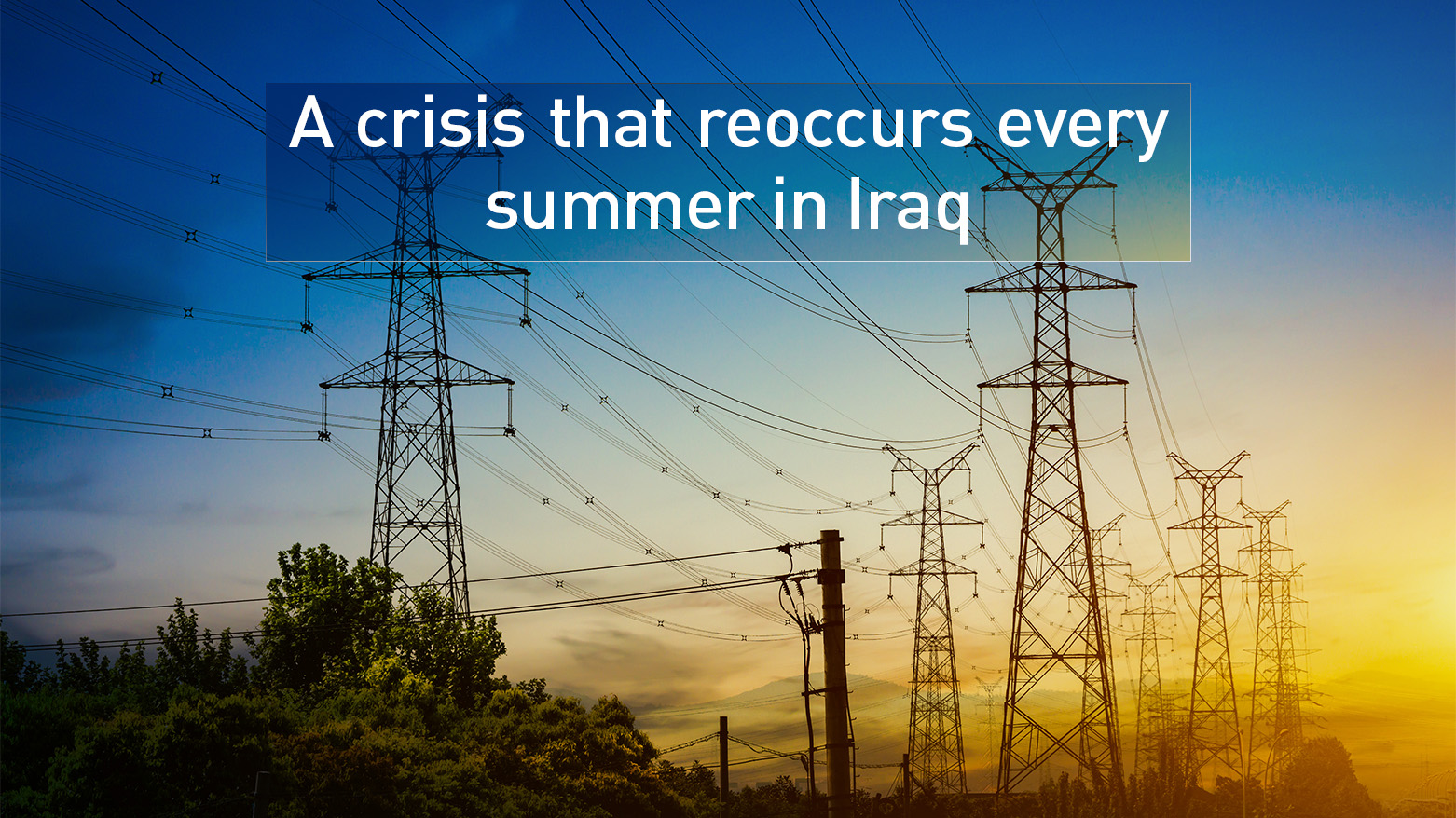Iraq’s Power Crisis Deepens Amid Heatwave, as Kurdistan Region Emerges as Energy Benchmark
Iraq's power crisis worsens as summer heat returns, with Anbar residents getting just 2 hours of electricity daily. Meanwhile, Kurdistan Region maintains near-24/7 supply despite budget cuts, becoming a model of efficient energy management that frustrated Iraqis want Baghdad to replicate.

By Ahora Qadi
ERBIL (Kurdistan24) – As scorching summer temperatures once again grip Iraq, the country’s chronic electricity crisis has resurfaced, with widespread blackouts hitting several provinces and prompting sharp comparisons with the more stable energy supply in the Kurdistan Region.
In Anbar province, residents say electricity is barely available for two hours a day—intermittently—while in Erbil and other cities of the Kurdistan Region, power remains almost uninterrupted despite financial and political pressure from Baghdad.
‘Electricity in Kurdistan never cuts off’
Hamed Majid, a resident of Anbar, told Kurdistan 24 that the situation in his province is “very bad,” adding:
“Here in Anbar, electricity is always cut off. When we go to the Kurdistan Region, it's never interrupted. Even though their salaries have been cut and they don’t have a budget, electricity is available 24 hours a day.”
Majid said promises of reform and service improvement have become an annual ritual without tangible results. His sentiments were echoed by Sabar Hamed, a citizen of Ramadi, who called on the Iraqi government to deliver “real, lasting solutions” to the electricity crisis, urging it to follow the model set by the Kurdistan Region.
“The situation in Anbar is extremely difficult,” he said.
Activists call Kurdistan an example of better governance
Civil society activist Munthir Abbas also weighed in, saying there has been no improvement in electricity services for years, especially during summer months when power demand peaks.
“It’s been like this for years—every summer, as temperatures rise, the outages get worse,” Abbas said. “Meanwhile, in the Kurdistan Region, electricity is available 90 to 100 percent of the time.”
He added that public services in the Region surpass those in central and southern Iraq “in many areas,” not only in electricity.
A model of resilience despite adversity
Despite enduring significant financial challenges, such as salary delays and insufficient funding from the federal government, the Kurdistan Region continues to provide near-continuous power to its population. This consistency has turned the Region into a model frequently cited by Iraqi citizens frustrated with Baghdad’s performance.
Energy experts attribute the disparity to more effective resource management in Kurdistan, including reliance on local power generation stations and partial privatization of electricity distribution in some areas of the Region.
Citizens call for nationwide energy reform
Residents of western provinces, particularly in Anbar, are increasingly demanding that Baghdad replicate the Kurdistan Region’s planning, distribution, and oversight practices. They argue that access to electricity is a basic right that should not be subject to regional disparities or political calculations.
With rising temperatures and intensifying public frustration, Iraq’s electricity sector remains a stark symbol of the country’s broader governance challenges—and a rallying point for those seeking reform.
